Total War: Three Kingdoms Review
A Diplomatic Victory
If you have been following or playing the Total War series for any significant length of time, you can't really be blamed for developing a bit of apathy towards this generally well made but perhaps overly prolific strategy series. Even as Total War Warhammer games offered up a refreshing dark-fantasy respite from historical conflict, I certainly felt this way following the competent but comparatively straightforward return to reality with last year's Thrones of Britannia. As such, I found myself dragging my feet a bit going into yet another massive historically themed Total War release with Three Kingdoms, set in the late 2nd and 3rd centuries in ancient China. Fortunately, my apathy didn't last long, as this is the most riveting historical entry the series has had in some time, even if some aspects of the formula remain largely unchanged and can feel a bit stale on occasion.
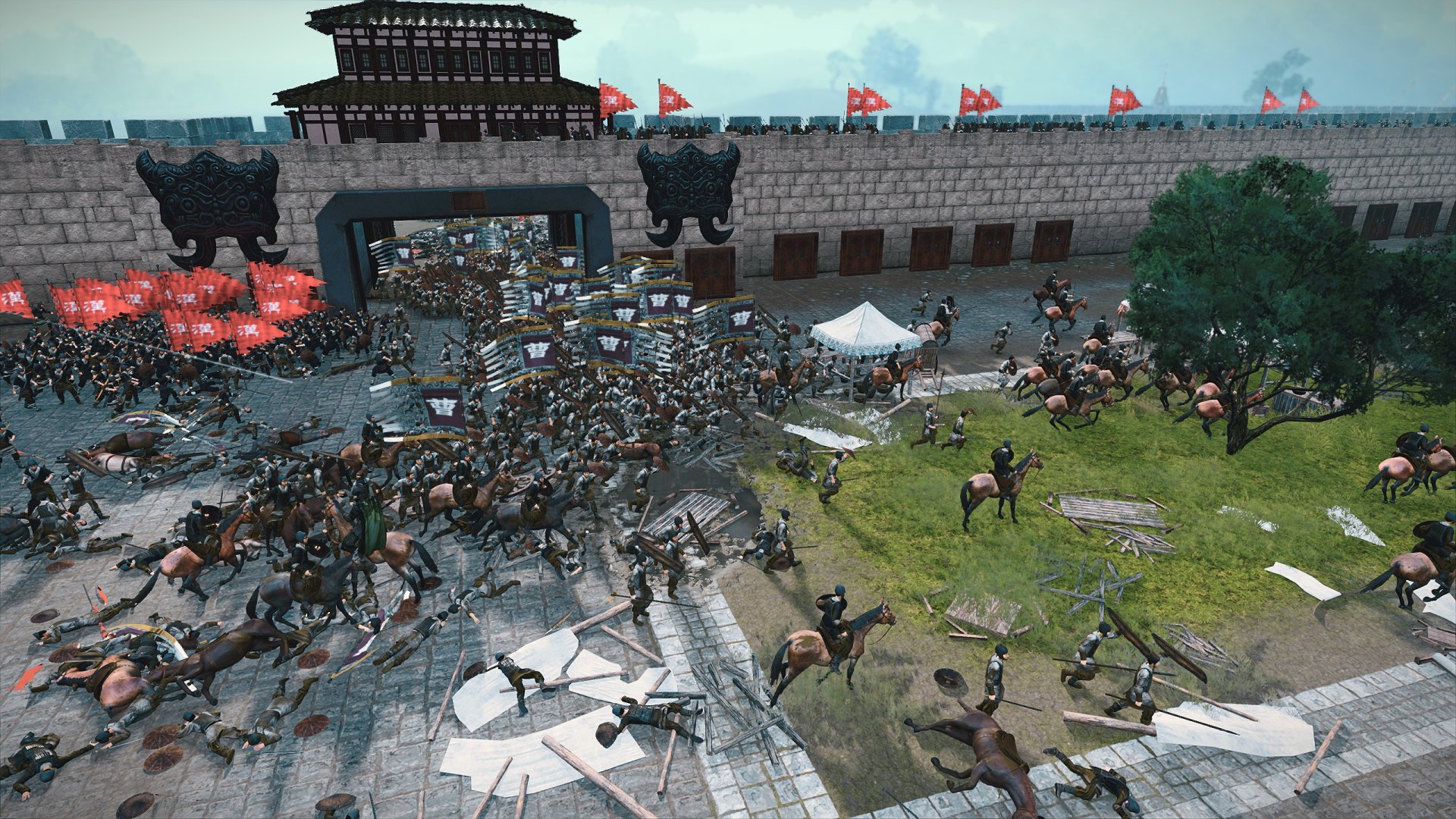
One major aspect of Three Kingdoms that greatly enriches the experience is the setting. China at the end of the 2nd century was a divided empire, as the fall of the Han dynasty following a rebellion left power in the hands of a corrupt and tyrannical leader Dong Zhuo, whose eventual assassination sent the country in an extended period of political turmoil and civil war. With no clear centralized ruler, various factions led by opportunistic warlords fought and schemed to gain power and unite China under new leadership. Total War Three Kingdoms allows you to step into the shoes of these warlords, at which point you can attempt to follow or upset history after the factually founded starting conditions that see Dong Zhou taking control.
Just as significant is how Three Kingdoms bucks the trend of streamlining that has been occurring in the series for a while now. The game is absolutely massive with a lot of depth to the point that it is somewhat intimidating to approach, even for Total War veterans. The game does a decent job of introducing new ideas, and has a clever function that lets you put on a UI overlay with tooltips for everything, but there is a lot to take in and it's an appreciable learning curve nonetheless. As a player, you can choose to enter the fray as one of twelve factions, which are divided up between coalition, governor and outlaw types. You can also unlock and play as the tyrant Dong Zhou himself. Though the specifics of each faction type are a bit different – for example, governor factions are still loyal to the weakened Han Empire, while coalition factions are not – the ultimate goal remains the same: try and become powerful enough for your faction leader to become the new emperor of China and reunite the divided nation.
To facilitate the complicated political landscape, Three Kingdoms provides a significant shake-up to how the grand-strategy side of the Total War formula plays out. The diplomacy system has been revamped and is much improved over past games, allowing for far more flexible and interesting wheeling and dealing than ever before. One small but useful addition is a number that represents the feelings of another faction about a proposed deal – for instance, offering a peace treaty when you're losing will result in a negative number, indicating the enemy won't go for it. However, offering up a large donation of cash and some regular food shipments will change that number, letting you tweak a deal such that both parties can get what they want. You can also arrange marriages between other factions and members of your faction leader's family, and you will even need to take into account whether the bride and groom like each other if you want to avoid trouble down the road. Special, randomized items called Ancillaries can be equipped on your generals and political figures for bonuses, or traded away for money or during diplomatic negotiations.
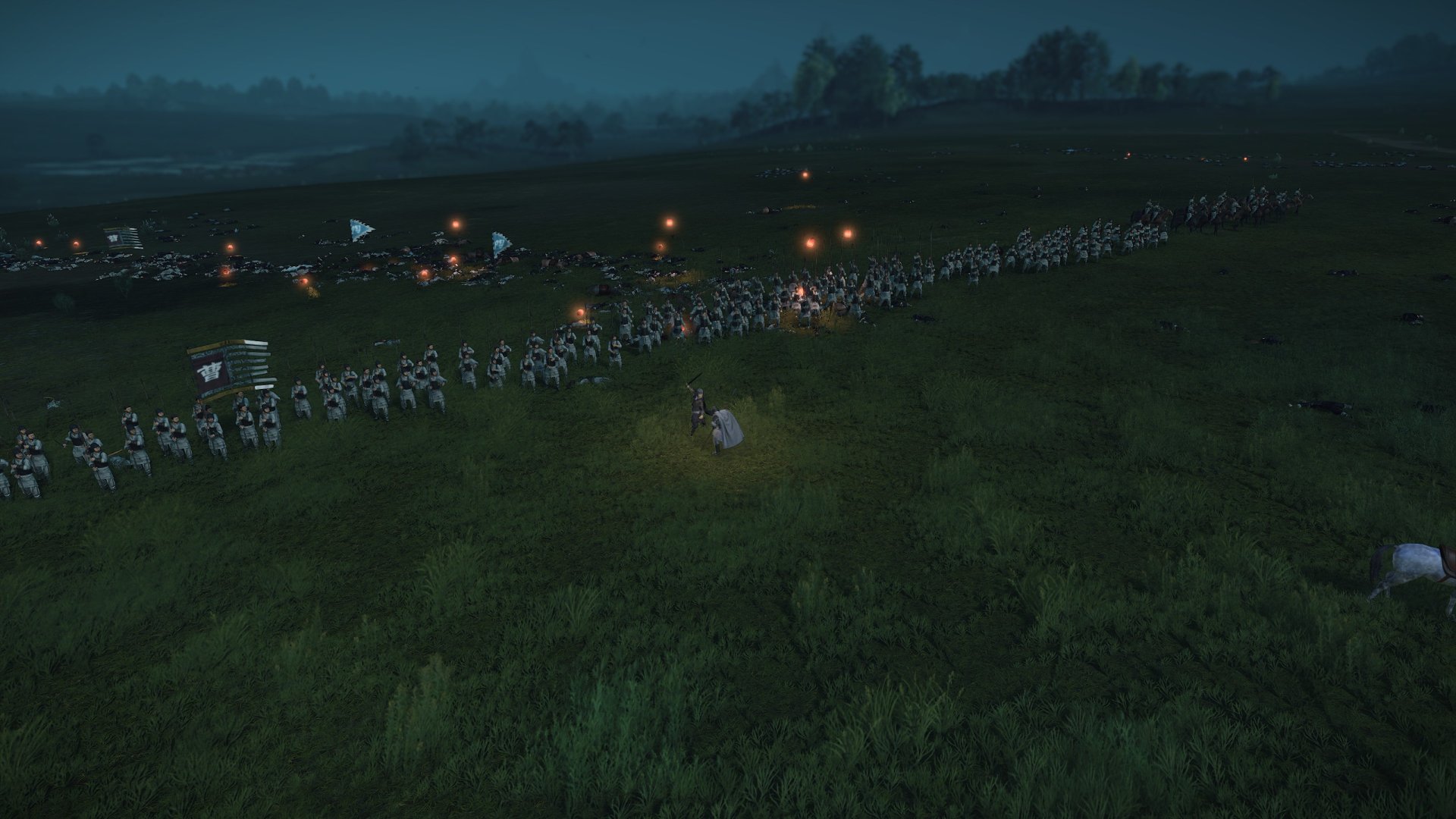
Depending on what faction you play as, you might have some faction-specific diplomatic tricks up your sleeve as well. The strategic mastermind Cao Cao, for instance, can build up political influence, and use it to instigate proxy wars between other factions, letting them fight each other for a while before you enter the fray to clean up the weakened forces. Yuan Shu on the other hand has a unique ability to demand other factions support his claim to emperorship, allowing him to increase the legitimacy of his claim faster. Every faction has some unique trait or mechanism that will cater to a certain playstyle, be it brute military force, creating strong alliances or manipulation of others. This, along with varied starting circumstances, lends a pretty incredible amount of replay value to the game's campaign mode.
Regardless of which faction you play as, the further you progress into the campaign, the more other factions will start to team up to fight you. Similar to how Realm Divide worked in the excellent Shogun 2, once your faction leader gains enough legitimacy and moves closer to becoming emperor, other factions will see you as an increasingly menacing threat and declare war. As such, even if you have a powerful empire by late in the game, you will still need to be very careful in picking your fights as some AI factions will have gained just as much power and can cause real problems. You will also be given optional missions to go to war with specific factions as a means of following historical timelines, and doing so can lead you to turn against powerful allies. Between these increasingly challenging wars and the opportunistic AI found in Three Kingdoms, you never really reach a tipping point of power where it feels like you're unstoppable, a problem that has made the late-game stages of some previous Total War campaigns somewhat dull.
While you are managing alliances and wars with other factions, you will also need to keep an eye on your internal affairs. You'll have to ensure there's enough food for your populace, which is now mainly accomplished by taking over farmland or fishing ports, instead of simply building certain structures in existing territory. The usual Total War balancing act of managing food, population increase, tax rates and the happiness of your people is generally handled well here, and failing to do this effectively can result in rebellions. A bit more novel is having to worry about the loyalty and satisfaction of your generals and politicians. As your faction grows, an increasing number of political positions become available, which you must fill with important characters. They can become unhappy if they feel they aren't getting promoted, or dislike the faction leader or other politicians. If you let your politicians become too dissatisfied, they can start a civil war.
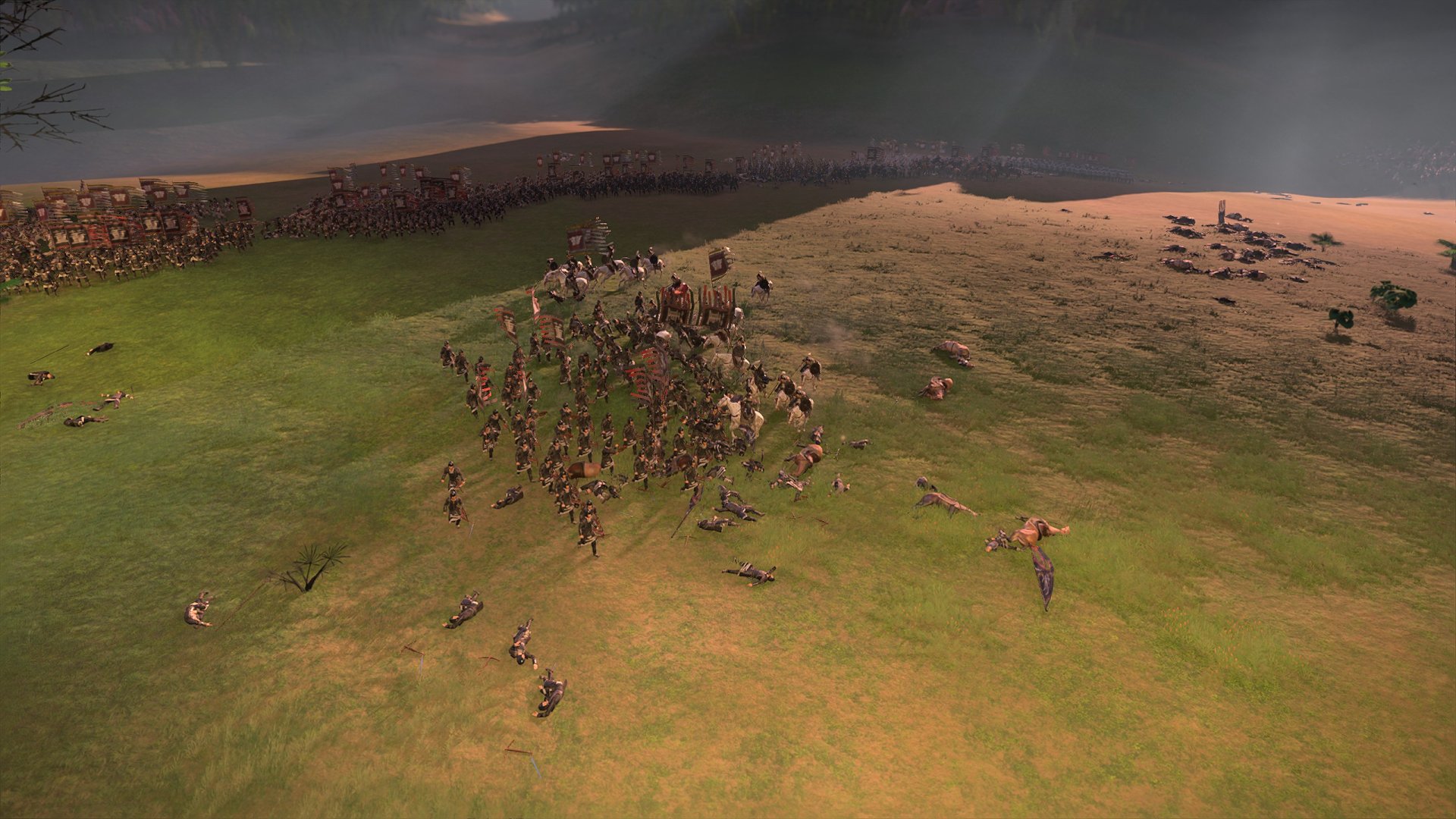
Similarly, when building armies, you need to ensure that each general gets along with the others. Having compatible generals fighting together will result in bonds between them that improve their effectiveness, with the opposite conditions resulting in rivalries and lower morale. Unlike previous Total War games, a single general cannot have a full-size army under their command. Instead, a full army will have a commanding general with a retinue of six units, with two additional generals who have control of their own retinues. A general will increase in rank across battles and will typically gain bonuses that apply to their retinues. Having a well-rounded army with generals who like each other and have complimentary abilities on the battlefield can make a huge difference.
The combination of a more involved and flexible yet transparent diplomacy, as well as deep and meaningful inner-faction management, help the turn-based strategy aspects become among the best in the series to date. Playing on normal difficulty, I felt that progression was challenging but always possible with the right approach, and that I had to really think about what structures I built, what skills I unlocked, when I built up my or moved my armies, and who I chose to ally or fight with. Hasty decisions lead to disastrous consequences on multiple occasions, and the fact that the AI factions seem to be engaging in equally elaborate schemes with each other means the political landscape changes frequently and dramatically.
If there is one area of Total War Three Kingdoms that feels like it is mostly recycled from previous games it is the real time battles themselves. These play out almost exactly the same as they did in 2015's excellent Total War: Attila, with a couple of notable differences. The biggest change is that you can choose to play battles in Romance or Records mode. In Romance mode, generals are as powerful as romanticized legends make them out to be, able to wade into the thick of battle as individual heroes who can take on an entire enemy unit and live to tell the tale. Your generals can also challenge enemy generals to a duel, at which point they will fight uninterrupted until one dies, becomes wounded or flees the fight; using special abilities during these duels provides an advantage.
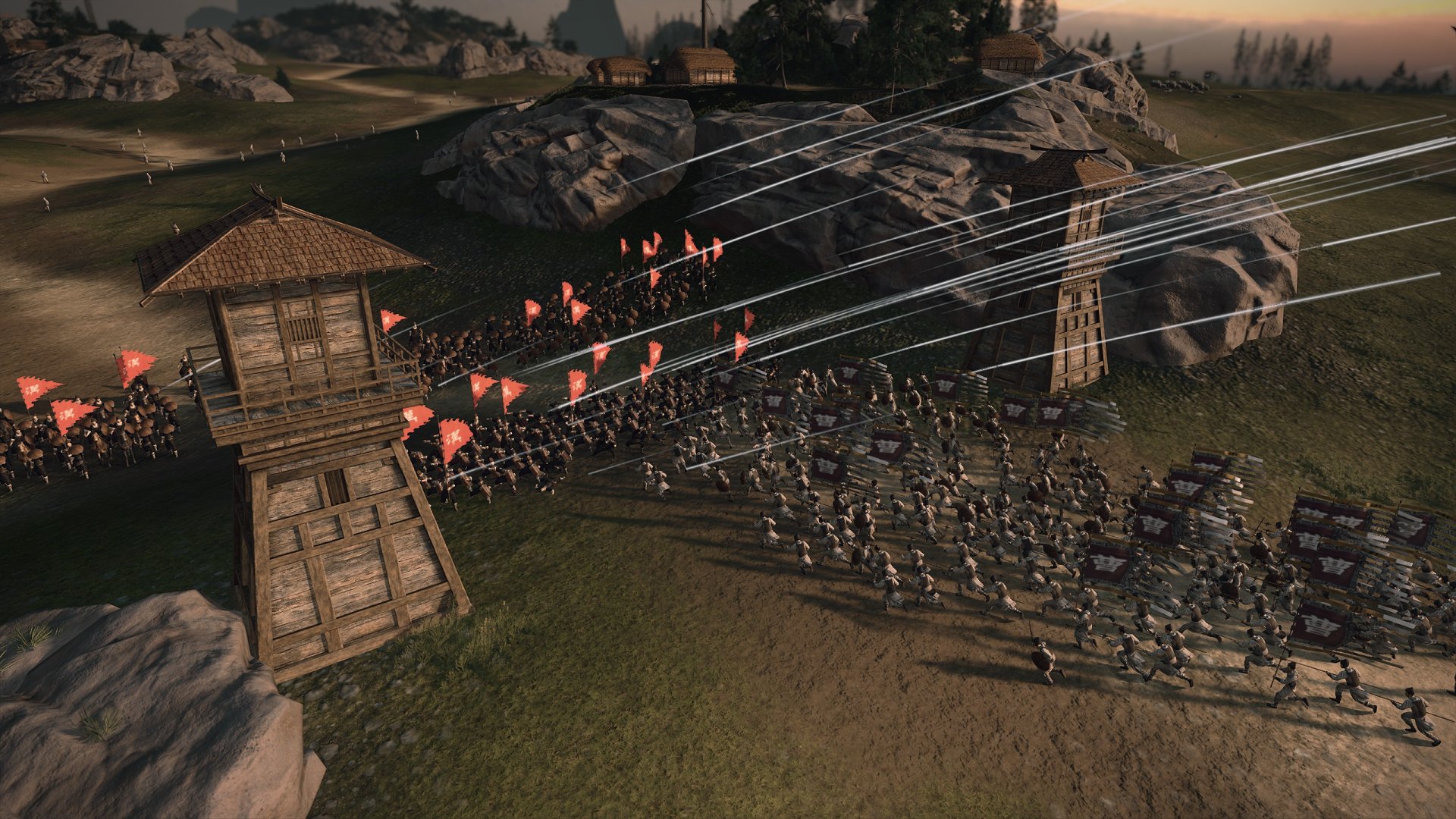
Records mode on the other hand offers up a more grounded and traditional experience, where generals will go into battle with their own units, and generally will behave similarly to how they have in previous Total War games. I personally enjoyed Romance mode a bit more, because the super-powered generals and duel mechanics are pretty much the only thing that differentiates battles in Three Kingdoms from past games. Apart from this, the typical assortment of sword and pole-arm infantry as well as cavalry, archers and support units like trebuchets behave as they typically do. Keeping your infantry in the middle of a battle, with archers behind and cavalry on the sides to flank the enemy, remains a winning strategy much of the time.
One feature unseen since Attila that helps make battles more interesting is different maps for settlements; if you are attacking or defending smaller settlements such as farm towns or ports, there will still be some buildings, choke-points, a capture point, as well as some archer towers that can alter your tactics. This, in combination with varied locales and competent AI, make for some exciting and epic battles, and the scale is just as impressive as ever, even though I could still use the same strategies that have worked in historical Total War games for years. As a mostly land-locked nation, it is also worth noting that naval battles are not present in Three Kingdoms; you can move your forces across water and come into conflict with other armies, but you can only auto-resolve these situations. There are some historical battles outside of the campaign, which offer up some more interesting and elaborate multi-staged scenarios as you put yourself in the shoes of a historic general.
If you would rather test your skills on the battlefield against other players, the usual options exist for creating custom battles where you can choose to face off with any combination of units, maps and army sizes you can think of, up to a total of 8 players with four on each side. You can also mix AI and human players if you so desire, or play entirely with and against AI. I did struggle to find people posting public matches for this, so you might be best off finding some friends if you want to experiment with the sandbox mode. There is also ranked matchmaking that will match you into competitive battles. Though I was able to get into ranked matches, I found most of them to be extremely laggy. Since time can only be sped up if all players agree, between this and frequent pauses mid-battle due to lag, ranked matches tended to drag out for a ridiculous amount of time and didn't seem like a very fun way to experience the large scale conflicts.
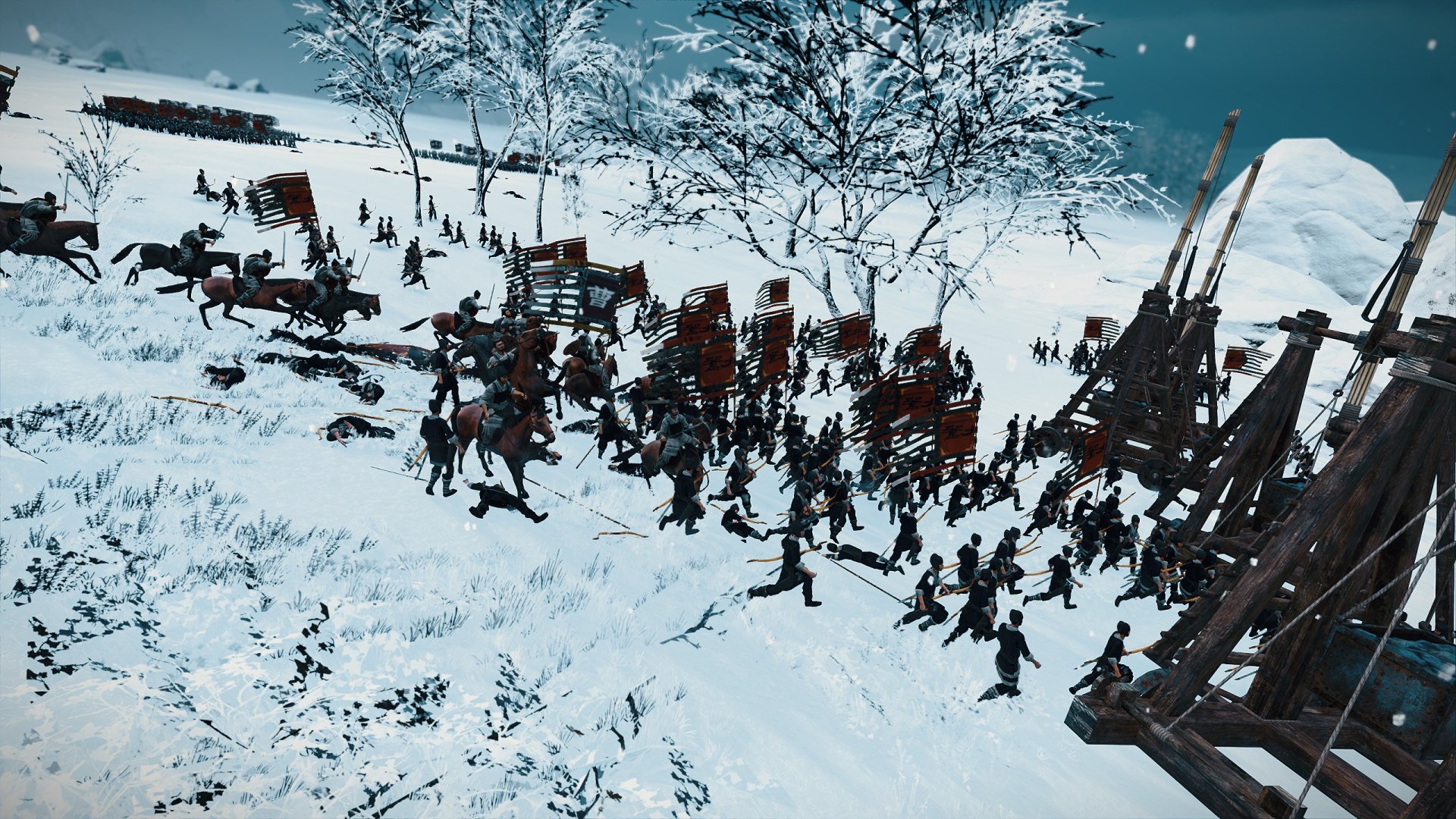
The option to play co-operative or head-to-head campaigns also returns from previous games, and remains a great option if you have the patience to wait for your friend or rival to complete their turn. In co-op, one player can 'gift' units to another so both get to take part in battles involving only one of the factions, while in head-to-head campaigns the second player can choose to control the forces of the faction opposing the player who is directly involved in the battle, so at least there are options to keep things interesting during skirmishes.
Visually, what allows Three Kingdoms to stand out is its art style more than its technically proficient visuals. The menus, map, story cutscenes, portraits of characters and even things like the loading screens are beautifully rendered. The skill tree takes the form of a cherry tree with skills turning into blossoms when unlocked. The technical side of things is comparable to the last couple of Total War games; siege battles with thousands of soldiers, flaming arrows flying back and forth and trebuchet rounds crashing into the lines remain a impressive spectacle. Night time battles have a unique atmosphere as soldiers carry glowing lanterns onto the battlefield. The orchestral soundtrack is up to the high bar set by the series, remaining more peaceful on the campaign map and ramping up during battles, reaching a climax during duels between generals.
If you have been waiting for the Total War series to return to its former glory in historical realms, your wait is now over as Three Kingdoms is an impressively robust and well made strategy game. Ancient China makes for a great backdrop for epic-scale battles and elaborate political machinations that will keep you scheming and fighting into the wee hours of the morning. Though the battles might feel overly familiar at times, the turn based strategy side of Three Kingdoms is the best it has ever been in the series, making it easy to recommend to anyone looking for a chance to put themselves in the shoes of a opportunistic and ambitious warlord during one of China's most tumultuous historical periods.
 Comments
Comments




















